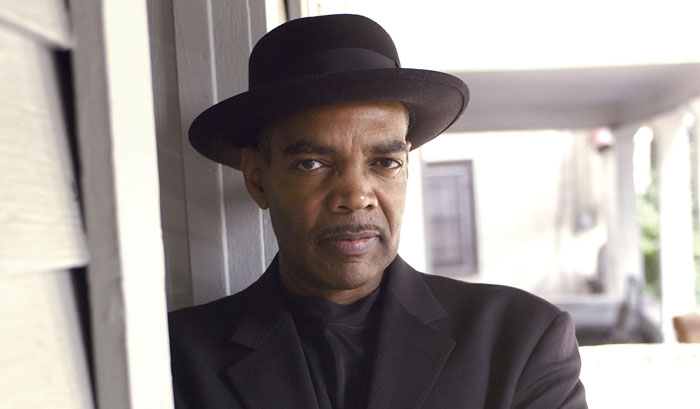


"MY PARENTS USED TO GO TO THE SAVOY BALLROOM IN NEW YORK TO dance and hear great music," says Brown, whose credits include stints with Stevie Wonder, Lionel Richie, Marvin Gaye, Stanley Clarke, and Chick Corea. "It turns out, my mom was dancing at the Savoy when she was pregnant with yours truly. Guess those grooves and rhythms got through!"
Less than five years later, Gerry found himself behind a real drum kit. "My parents saw how fascinated I was by the drummer on the Arthur Godfrey Showon TV, so before I tore up the house beating on everything, they took me to a music school."
My dad would take me to see all the great drummers whenever they came to town. He would have to sneak me into the clubs, because I was underage.
It was just the beginning of a dream music education, one that might have been possible only in Brown's hometown of Philadelphia. Gerry was tutored by a series of classical percussionists, ultimately studying with the Philadelphia Orchestra's Alan Abels and performing in Abels' own ensemble. "This foundation of classical music has taken me to where I am," states Brown. "I'll always have my appreciation and love for classical music."

But it was only part of the Equation. Philadelphia in the '50s and '60s boasted not only one of the world's finest orchestras, but also jazz and R&B scenes of legendary vitality. "It was a great training ground," says Brown. "One of our neighbors was Howard Rice, a jazz drummer. And my dad would take me to see all the great drummers whenever they came to town - Elvin Jones, Joe Chambers, Max Roach, Tony Williams, and of course Buddy Rich. My dad would have to sneak me into the clubs, because I was underage. I also heard a lot of blues growing up, and on Sundays our house would be filled with gospel music. I learned from an early age that I should never limit myself to only one style of playing. The more styles I could play, the more I'd be in demand."
Everything started to coalesce by the time Gerry began performing at high school dances, often in tandem with his buddy, bassist Stanley Clarke. "That's when I really started to understand the concept of playing different styles," says Brown. "We learned to emulate the great rhythm sections we heard and saw."
Brown went on to make seven albums with Clarke, discs that helped define the emerging jazz-fusion style. "I was blessed to have been there at a groundbreaking time in music, but I wasn't really conscious of that at the time," he says. "Now when I hear the word 'fusion,' I think of how I had the YMS disease: 'Young Man Speed.'"
But, in fact, Brown balanced his showier jazz style with tight, restrained R&B work. He says the best way to mentally navigate between the two approaches is to think of the players who most influenced him in each style. "If it's a jazz gig, I think about Elvin Jones, Tony Williams, and Jack DeJohnette. If it's a groove gig, I think Jeff Porcaro, Harvey Mason, Dennis Chambers, and Vinnie Colaiuta."
Brown has played Yamaha drums since 1987. His main kit is a Absolute Birch Custom. "I wouldn't say I necessarily prefer the sound of birch over maple or beech," he explains. "I might use maple if I want something that really cuts, birch if I want a smoother sound, and beech for something in-between. Yamaha has been on top for so long that all their shells are happening, and Yamaha's hardware is the strongest and highest in quality. My favorite snares right now are the copper 51/2" and 61/2" models. I like how they let me dig in or finesse them, and they always respond."
Of the countless gigs Brown has played since the '70s, which ones were the most memorable? "Definitely the Stanley Clarke gig where Jaco Pastorius sat in," he recalls. "Also the Lionel Richie performance at the closing ceremonies of the 1984 Olympics. And the Music Magic gigs with Chick Corea. And any Stevie Wonder gig! It's so unbelievable playing with him - he's the Black Mozart. Can you imagine playing for someone who has such a history? To be able to concentrate on someone who can't see you, but whose other senses are so sharp? To understand that you're playing timeless songs that so many people can relate to? To know his material so well that a 'set list' is impractical? He won't tell you what the next song will be - he just starts, so you'd better be aware!"
























